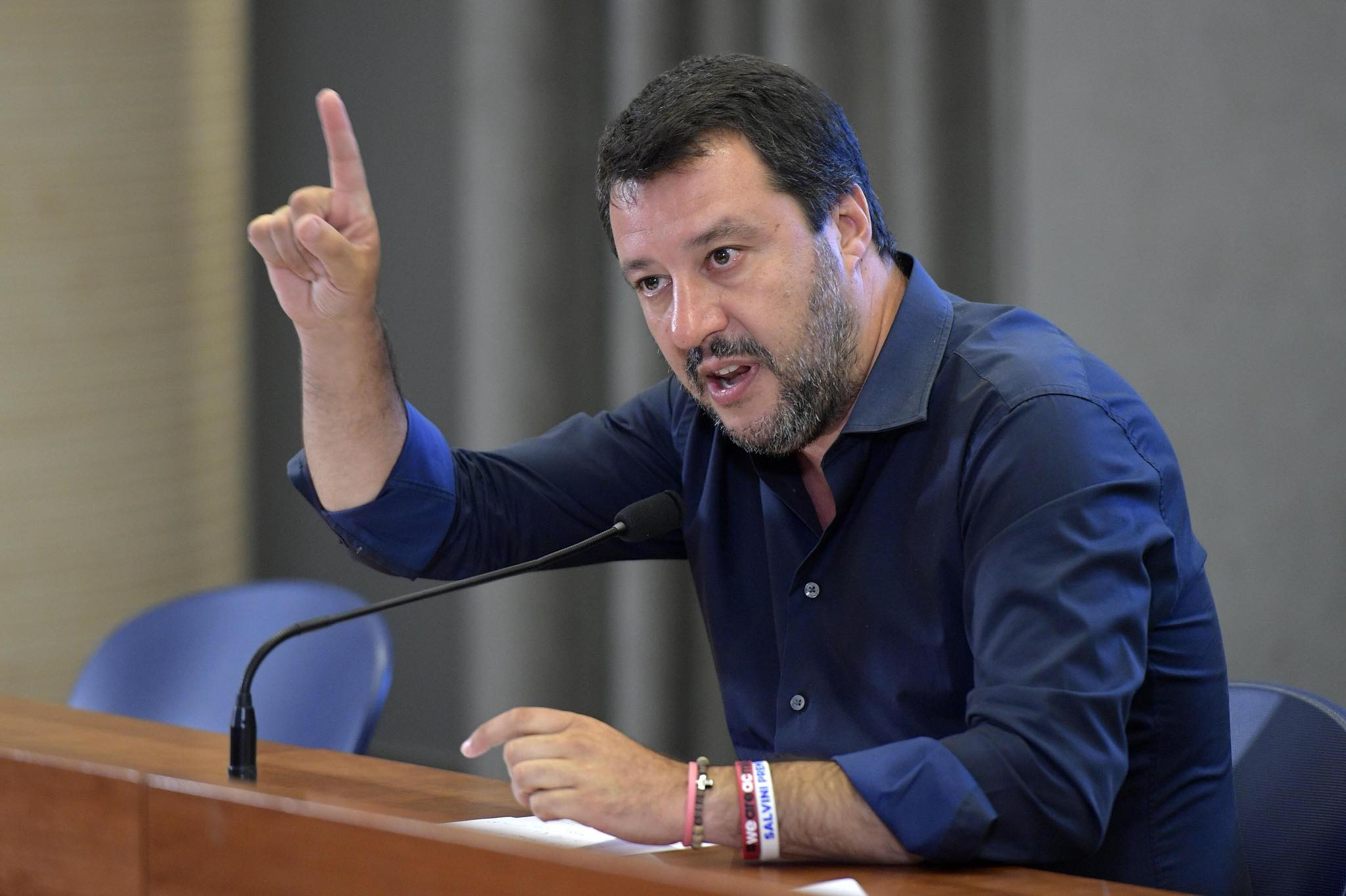
ROME — Lawmakers in Italy’s largest opposition party, the centre-left Democrats, huddled Wednesday to see if they could gather enough support in parliament for a durable government and avoid an early election that could bring Matteo Salvini’s euroskeptic, nationalist League party to power.
Their manoeuvring came a day after Giuseppe Conte resigned as premier, blaming Salvini’s break with his 14-month-old populist coalition as a calculated bid to trigger a national vote 3 1/2 years early and become premier himself.
Italian President Sergio Mattarella will ultimately decide if a solid majority with staying power exists in Parliament for a new government that could win the required confidence vote.
Mattarella began talks Wednesday afternoon, starting with the heads of Parliament’s two chambers, to help him explore where consensus lies. He is considering whether there is sufficient support for a solid alliance to replace Conte’s coalition, which consisted of the League and the anti-establishment 5-Star Movement. He could also conclude it’s in the best interests of the country to dissolve both chambers of Parliament so a new election can be held within 70 days.
While Salvini awaited his scheduled turn, on Thursday, to have his say with Mattarella, he depicted any move to form an alternative coalition as ganging up on him. He insisted that voters should have their say on who governs them next.
“Any government that is born is a government against the League,” Salvini told reporters who asked about efforts to possibly form a coalition between the Democrats and the 5-Stars.
After Italy’s March 2018 election, the Democrats and the 5-Stars failed to reach a deal to govern together, paving the way for the League to ultimately partner with the 5-Stars.
But just last week, the Democrats and the 5-Stars teamed up in the Senate to thwart Salvini’s hopes for a quick non-confidence vote against Conte. Conte’s resignation precluded holding any no-confidence measure aimed at toppling the government. Conte is now leading a caretaker government as Mattarella ponders Italy’s political future.
The co-operation between the Democrats and 5-Stars has apparently taken the League by surprise.
“We hadn’t expected there’d be such a quick agreement between the Democratic Party and the 5-Stars,” said Gian Marco Centinaio, who is close to Salvini and is the League’s agriculture minister in Conte’s government.
The opposition Democrats, who led coalition governments during the previous legislature, have been weakened by internal power plays for years but now seem united in efforts to keep Salvini from gaining power.
“If the conditions develop” for a coalition deal with the 5-Stars, “we have the duty to try,” Democratic leader Nicola Zingaretti told Sky TG24 TV after a strategy session among the Democrats’ brass.
“It’s the first time in years there has been absolute agreement” among the Democratic leadership, Zingaretti said.
During its first foray in government, the 5-Stars saw factions harden. The more left-leaning among the 5-Stars distanced themselves from Salvini’s crackdown on migrants and the humanitarian rescue ships that save them from traffickers’ unseaworthy boats in the Mediterranean Sea.
Some 5-Stars resist alliances as contaminating the party’s anti-establishment roots. But as Conte’s coalition rapidly frayed in recent weeks, 5-Star founder Beppe Grillo encouraged party lawmakers to explore a possible deal with the Democrats.
Zingaretti dismissed Salvini’s suspicions that the Democrats and 5-Stars were manoeuvring to keep him out of power and deny voters a chance to have their say at the ballot box.
“There’s no little, under-the-table deal,” said Zingaretti, adding that the Democrats were looking for a solid majority in Parliament for a government that can last and implement the policies that Italy, which is struggling with a stagnant economy, needs.
If that can’t be achieved, then an early election is warranted, Zingaretti said.
While Salvini supporters for months have been waving “Salvini for Premier” placards at his rallies, most recently even at Italy’s beaches, it’s too early to tell if the latest political uncertainties might attract or alienate Italy’s eligible voters.
Davide Controne, a middle-aged former policeman who was walking his dog in the centre of Rome, says none of today’s political options are satisfying.
“When I was young, I was close to the right,” he said, adding that he likes Salvini although he disagrees with his migrant policy. He said he didn’t vote in the 2018 national elections nor in last May’s European Parliament balloting.
These days, he said, his requirement from politicians is “common sense. I’m from the party of common sense, which, at the moment, doesn’t exist.”
——–
Dolores Hinckley in Rome contributed.